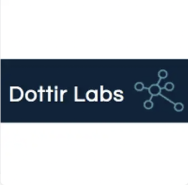Our Research Persistent monitoring of nitrogen waste products in the environment

Polluted waterway.
Principal Investigator
Rajeev Ram
- Principal Investigator for the Physical Optics and Electronics (POE) Group
- Professor of Electrical Engineering
- Department of Electrical Engineering and Computer Science
Rajeev J. Ram is professor in the Department of Electrical Engineering and Computer Science at MIT where he is a MacVicar Fellow. His group works on optical biosensing and microfluidic control of cellular processes. In addition to his work on microfluidics, his group has worked on rapid optical analysis techniques. They demonstrated the first quantitative Raman analysis in situ within a bioreactor—a technique that is now widely used in pharmaceutical production. Ram’s group has developed Raman for the quantification of metabolites in microbial and mammalian cell culture as well as for medical applications. Recently, his group has been working on the development of a new architecture for Raman spectroscopy that uses tunable lasers to miniaturize and simplify Raman measurements with the hope of making this technology widely available.
Challenge:
Can we demonstrate a robust technology for persistent monitoring of nitrogen containing pollutants that threaten water supplies?
Research Strategy
- Establish limits of detection for nitrate, nitrite, ammonia, and urea in environmental, industrial, and agricultural samples using swept-source Raman spectroscopy
- Develop and demonstrate a field portable swept-source Raman spectroscopy system
- Work with industrial and academic groups to generate operating conditions and use cases for the swept-source Raman system
Project description
Nitrogen in the form of nitrate, nitrite, ammonia, and urea is a potent and widespread environmental contaminant for which sensors are difficult to maintain and expensive to deploy. This project plans to demonstrate a robust technology for persistent monitoring of nitrogen-containing pollutants which threaten over 15,000 bodies of water in the U.S., more than 100,000 miles of streams, and 3.5 million acres of lakes and reservoirs. These contaminants have also led to harmful algal blooms that threaten human health, as illustrated by recent events in Toledo, Ohio (2014) and Mississippi (2019).
News
Spinout Company
Dottir Labs

Dottir Labs uses a sensing technology based on Raman spectroscopy that is uniquely designed for aqueous environments to sensitively and specifically detect nutrients, metabolic markers, organic and non-organic waste products, and more from fresh or salt water.
Additional Details
Impact Areas
- Water
- Food
- Climate & Sustainability
Research Themes
- Water Purification & Desalination
- Sensors & Monitoring
- Water Resources & Infrastructure
- Soil Fertility & Crop Productivity
Year Funded
- 2023
Grant Type
- Seed Grant
Status
- Ongoing

